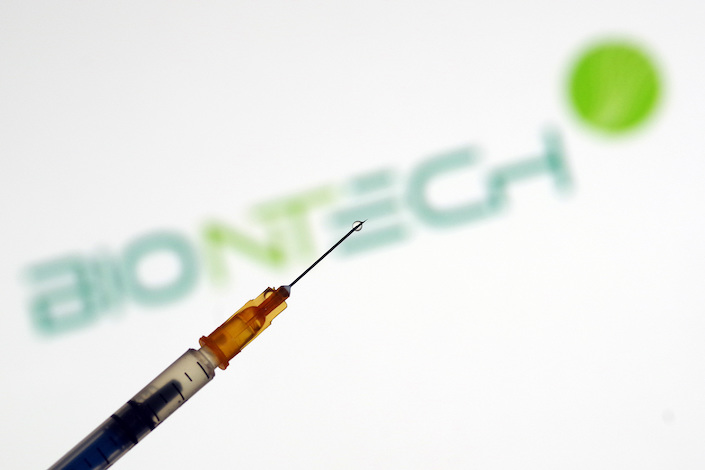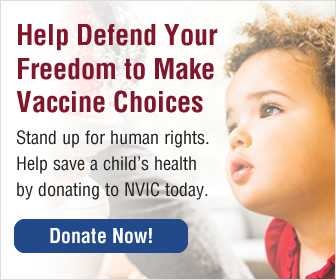
On December 21, 2013, The Huffington Post published an article entitled “Americans Have Little Faith in Scientists, Science Journalists: Poll.” The article noted that, according to a HuffPost/YouGov poll, “only 36 percent of Americans reported having ‘a lot’ of trust that information they get from scientists is accurate and reliable. Fifty-one percent said they trust that information only a little, and another 6 percent said they don’t trust it at all.”
People trust science journalists even less, with only “12 percent of respondents said (saying) that they had a lot of trust in journalists to get the facts right in their stories about scientific studies.”
I was raised by an engineer with a science background. I don’t have any religious beliefs that keep me from believing what scientists say about human or earth history. My political and ideological beliefs don’t conflict with those of scientists, generally. I believe that science is the best method of seeking the truth that humans have found thus far. I believe in the efficacy of the scientific method.
But I am one of the people in the 51 percent who only trust the information provided by scientists “a little” and one of the 88 percent who doesn’t trust science journalists to get the facts right. I haven’t fully lost my faith that scientists will eventually get to the right answers, but I have lost my trust that they are on the right path. Here are a few reasons why:
1. I know more about my mysterious condition than they do. I had an adverse reaction to Cipro, a fluoroquinolone antibiotic, and that triggered Fluoroquinolone Toxicity Syndrome—a syndrome that is more similar to an autoimmune disease than an allergic reaction to a drug. There are hundreds of reputable, peer-reviewed journal articles about the effects of fluoroquinolones on human cells. I am thankful for those articles (and the scientists that did the research and wrote the articles), as they have given me much of the information that I have. But there is no consensus among research scientists about how fluoroquinolones affect humans, or even human cells.
Fluoroquinolones are chemical creations of humans. Their effects on human cells should be testable, verifiable and known (they have been on the market for more than 30 years), but they’re not. The effects of fluoroquinolones on human cells are complex and multifaceted. But there are causes and effects and truths to be found, yet victims of these drugs are left to do the research about how these drugs work and put together the pieces as to why they are ill, because the experts, the scientists and researchers, aren’t. This isn’t okay.
2. Rise in chronic mysterious illness. People are sick with “diseases of modernity.” Doctors and scientists don’t seem to have any answers as to what diseases like fibromyalgia, chronic fatigue syndrome, adverse reactions to drugs (including vaccines), autoimmune diseases, allergies, and others are caused by, or how to fix them. When you, or a family member, become ill, and there is nothing that your doctor can do to help you, yet your pain and suffering are definitely real; the natural and reasonable tendency is to lose trust in those who are failing to give you answers. We expect answers to medical, biological, and chemical problems from doctors and scientists, and when they fail to give us those answers, we lose faith in them.
3. Publication bias. Publication bias is “the practice of selectively publishing (drug) trial results that serve an agenda.” It’s an ethically disgusting practice and most scientists agree that it should be eliminated, somehow. Yet it continues. The Huffington Post article noted that many people distrusted scientists and science journalists because they believed that the scientist’s findings were influenced by political ideology or the influence of the companies sponsoring them. No system has yet been put into place to minimize or eliminate bias.
4. Scientists aren’t seeing the big picture. There is a struggle between specialization and detail, and the so-called “big picture.” Journal articles will point out details of a problem, then fail to link those details to the big picture. For example, there are journal articles that note that fluoroquinolones deplete mitochondrial DNA. What that means for human health and how that affects the person who takes those drugs, is not noted.
5. Scientists aren’t taking a stand. There are journal articles about the disastrous effects of some drugs on human health, but there seems to be little screaming about the limiting of the use of those drugs based on the findings. Rather, the warning label is simply updated, and people continue to be hurt, when their pain, suffering and death could have been prevented.
6. Nonsense explanations. In an article in The Atlantic entitled “Living Sick and Dying Young in Rich America” about how an increasing number of young people are coming down with chronic illnesses, especially autoimmune diseases, the explanations put forth by the doctors and scientists interviewed as to why young people are sick with autoimmune diseases bordered on ridiculous. Junk food and a lack of exercise were asserted to be the main culprits.
Junk food and lack of exercise will certainly make a person fat and they may cause some chronic illnesses like obesity and diabetes, but they aren’t likely to trigger an over-expression or over-stimulation of immune system cells (unless the junk food is made from GMOs and immune-system altering chemicals, in which case it’s possible), which is what causes autoimmune diseases. Perhaps pharmaceuticals that have been shown to stimulate immune system cells should be looked at as a culprit, instead of the victim’s diet and exercise habits
7. Faith-based assertions. Almost every journal article I read about the safety of the drugs that hurt me, fluorouquinolones, has a faith-based, incorrect statement that they are “generally regarded as safe.” Many of the articles then go on to note deleterious effects of fluoroquinolones on human cells, but those truthful findings don’t seem to inspire revision of the presumptive statement that they are “safe.”
8. Faith-based following. To be accused of being anti-science is a huge insult. If you question the safety of a drug or vaccine you risk being accused of being anti-science, and the assumption is that you must be irrational, dangerous, or opposed to the progress that has been made with other pharmaceuticals or vaccines. The demonizing of those who question scientists is, ironically, anti-science, as science is built on questioning assumptions and faith-based beliefs.
9. Conflicting results. When questions are asked that should have a yes or no answer, and those questions can be verified in a laboratory setting, different groups of scientists should be able to get consistent results. Replicability is a tenet of science. Yet there are conflicting results to many important, answerable questions throughout scientific journals. It’s frustrating and it decreases the credibility of scientists that questions that should be answerable aren’t being answered.
10. Changing stories. Is butter good for us or bad for us? How about coffee? How about fluoride? What about statins? The story changes constantly. This destroys the credibility of the people telling the story—doctors, scientists, nutritionists, and others.
11. Disbelief of patient reports. If one patient comes forward asserting that a pharmaceutical or vaccine hurt him in an unusual way, it is reasonable to think that the patient might be mistaken, that there might be another explanation for his pain. However, if hundreds or thousands of patients come forward with the same, or similar stories, their assertions should be listened to.
Unfortunately, their stories are being systematically disregarded and denied by doctors and scientists alike. Hurt patients have no reason to lie, they have no conflicts of interest (generally), so they should be listened to and believed. In systematically ignoring them and their pain, doctors and scientists are being callous and un-curious, and they are losing credibility.
12. Not asking the right questions. Mitochondrial dysfunction is related to many diseases including, “schizophrenia, bipolar disease, dementia, Alzheimer’s disease, epilepsy, migraine headaches, strokes, neuropathic pain, Parkinson’s disease, ataxia, transient ischemic attack, cardiomyopathy, coronary artery disease, chronic fatigue syndrome, fibromyalgia, retinitis pigmentosa, diabetes, hepatitis C, and primary biliary cirrhosis” (source) and others.
Many pharmaceuticals, including statin drugs, synthetic antibiotics, antidepressants and others, adversely affect mitochondria. Yet the affects of drugs on mitochondria are not systematically examined before drugs are put onto the market. If mitochondria are not being looked at, the right questions are not being asked, and if they’re not asked, they won’t be answered. We count on scientists to ask the right questions. When they don’t, they lose credibility.
The list above saddens me. If I can’t trust scientists to give me answers, who can I trust? Is there an alternative? I’m not the type to start an alternate belief system, and I truly do believe that the scientific method is the best way of finding truth that we have. But scientists are failing to find the answers as to why, for example, an increasing number of young people are suffering from chronic autoimmune ailments than at earlier times, or appalling autism rates keep getting worse and worse, and people are suffering because of the lack of answers provided. So I have lost trust in them.
Sadly, I have more trust in personal reports (which are, of course, anecdotal) that I read on the internet than I do in scientific studies. At least I know that the people screaming about their pain, their struggles, their need for answers, etc. aren’t subject to publication bias with their screams.
The only way to find answers to chemical, biological and medical problems is through science. Scientists must be the ones to step up to do the science. They must be the people to find the answers. Substantive, reliable, replicable, truthful information cannot be gained without them and their methods. We are at their mercy in finding answers to many of life’s problems, especially those having to do with human health. I trust that some brave scientists will step up to rectify some of the criticisms that I listed above. I certainly hope so.
I don’t expect scientists to be perfect. I don’t expect them to have all the answers. I don’t expect them to be infallible. But I do expect them to be curious, humble, truth-seekers who minimize bias and conflicts of interest to the best of their abilities. I expect them to be ethical and moral. I expect them to take responsibility for the bad that comes along with the good of their creations. I expect them to be prudent and careful when dealing with chemicals that can mess things (human bodies and the environment) up in ways that can’t be fixed. I expect them to be honest. I expect them to be outraged. I expect them to be curious. I expect them to seek answers to the real problems and dilemmas that people face.
Perhaps I’m naïve. Perhaps I’m expecting too much from my fellow humans who happen to have the title of Scientist. Perhaps I’m not being fair. I apologize if that is the case. We are all just people trying to do the best we can to make the world a better place. I just wish that I was still sure that, collectively, scientists were making progress toward making the world a better, not worse, place. Until I gain some reassurance, consider me one of the doubtful and untrusting. I am truly, deeply saddened by this.
Note: This article was reprinted with the author’s permission. It was originally published at Hormones Matter.














19 Responses
Science can never provide the answers that we are looking for, as long as we feel as though we continue to rely upon designated “experts” to tell us what is true. We need to make our own assessments. The minute that we stop buying into all of the BS they tell us is the same time that we may actually get some valid research.
The personal reports / anecdotes are the data points upon which all of the science related to human health is based. They are far more scientific than any bogus clinical trial or epidemiological study manufactured by corrupt researchers or governments. Sure, individual experiences can be misleading, but when a pattern develops, they can be very informative.
Thank you for this intelligent heartfelt and necessary essay. Beautiful, well said and timely. I suppose all I can add is that it seems science is deeply corrupted by the search for power and profit. Thank you again. Best of luck with your healing journey.
Hi,
You all need to watch this video:
? SCIENTISM EXPOSED ? Full Documentary (2016) HD
https://www.youtube.com/watch?v=AeIGrEtPMmE
What a strange article. An anthropologist from Mars, upon reading it, would have made a conclusion that on Earth there is only one kind of science– human biology. Nothing else matters to qualify for scientific research. She would have wondered where all that technology comes from, obviously. Perhaps from worship.
You are missing the entire point
That is a fair criticism of the article in some ways. Not all science is compromised as a portion of the biochemical field has been by the pharmaceutical industry. In fact there are many advances in physical chemistry, electronics, geology, engineering and on and on.
I would add, though, that science has been compromised in such major ways by greed and ego, that many of the points of the article hold true and should be addressed. In some ways, your comment is also a deflection from the very serious issues it raises.
It’s not strange at all…you just don’t get it.
Yes, yes, yes. The “scientists” do not seem to be very useful.
What David said! Part of the problem is that so many “scientists” have conflicts of interest with corporate financial interests, AND the federal government (i.e. people in the various agencies) have a relationship with many of the corporate interests!
Great article, except I disagree about junk food and exercise causing disease. I personally know many people who changed their diet and saw severe autoimmune problems diminish or disappear. And as for turning genes on/off, there was a study on San Francisco with men with prostate cancer who were being treated with watch and wait. The half of the subjects that changes their diet and walked 30 minutes per day “turned on” X number of anti cancer genes and “turned off” X number of cancer genes.
While I understand this person’s frustration, she misunderstands some basics of science and economics in the modern world. First, scientists have to pay their personal bills with the same money we all do—and they get money by working for others. These others are drug companies, universities, and some supplement companies. All of these companies expect a pay-off of some sort for the money they pay their scientists. Very few scientists are just doing work to further the knowledge of the world. Second, scientists are not the ones who usually get to present their findings to the public or the press—if they work for a drug company, their research might be altered to fit the companies economic agenda before release. There is a huge amount of fraud evident in drug company research published in medical journals. Third, medical doctors are NOT scientists except in a few rare instances. MDs have less knowledge about health through nutrition, supplements, exercise, etc. than the average health conscious person who does some real re-search. Finally, there are research sources online that can help most people with many answers including PUBMED.GOV, Rxlist.org, thennt.com, LEF.org, mercola.com. Good luck to all and remember to eat clean and green, take your supplements, exercise a lot, sleep in complete darkness and get some sun during the day! drchiptravis.com
The reason there are never any real ‘cures’ “discovered” is because if that happened all those so called ‘researchers’ would be out of a job! It’s the ultimate bureaucracy! They only care about their jobs and their paychecks. Medical research is laughable. As was said once (it was actually another type of research), “…we’re paid to look, not to find.”.
You are EXACTLY right…and it’s a disgrace!!
As to your first and second points, she covers them in #3. As to your third point, she’s saying MDs SHOULD know what they’re talking about, but don’t. Instead, they just parrot information they’re given without questioning it.
“Junk food and lack of exercise will certainly make a person fat and they may cause some chronic illnesses like obesity and diabetes, but they aren’t likely to trigger an over-expression or over-stimulation of immune system cells (unless the junk food is made from GMOs and immune-system altering chemicals, in which case it’s possible), which is what causes autoimmune diseases.”
The “Mercola.com” articles I’ve been reading for 6 yrs or more have been pretty clear in pointing out the connection between GMO “food” and Roundup and the spreading apart of the cells in our abdominal wall which allows undigested proteins to leak into the blood stream (leaky gut) which has led to the drastic increase in digestive based diseases including auto-immune disease.
Dangerous Bt-Toxin Found in Monsanto’s GM Corn
articles.mercola.com/sites/…/dangerous-toxins-from-gmo-foods.aspx
Oct 6, 2011 … If Bt-toxins were causing holes in the intestinal walls of newborns, the … And hopefully, that food is non-GMO—but not if Monsanto has its way. … change several Human cell lines making it a major concern in the spread and …
Your Leaky Gut May Be Caused By Excessive Grain Consumption
articles.mercola.com/sites/articles/…/grains-causing-gut-leaks.aspx
Jan 21, 2012 … … gaps between the cells (enterocytes) that make up the membrane lining your intestinal wall. …. It also causes cytoskeleton degradation in intestinal cells, …. change several Human cell lines making it a major concern in the spread … pesticides, herbicides, hybridization, GMO, additives and sugars, etc. we …
Study Reveals Significant Inflammatory Response to GM Foods
articles.mercola.com/sites/articles/…/gmo-foods-inflammation.aspx
May 18, 2014 … Independent GMO Researchers Face Many Challenging Hurdles. As one of … He was also seeing things such as a thinning of intestinal walls, and ….. are taken up by the cow that spreads the BT toxin to every cell in the cow.
Monsanto’s Roundup Ready Herbicide is More Toxic than DDT
articles.mercola.com/sites/…/dr-don-huber-interview-part-2.aspx
Jan 15, 2012 … You can reach in to the non-GMO-fed rat cage and pull one out. … When they looked at the intestine, they said that the intestinal lining is deteriorating… … ago when US Government officials and Wall Streeters hailed the Biotech … change several Human cell lines making it a major concern in the spread …
Of all the items listed, only #3 has general rather than personal relevance. It is important to deal with the publication bias in medical journals. The author seems to think, however, that science ought to come up with answers on request rather than going through the messy process of actual science where things are sometimes got wrong, where there are conflicting results that have to be dealt with, where theory has not caught up with empirical results yet, and many other factors. As I see it, much of the article is really saying, “science has not provided me with the answers I want, so I don’t have faith in it any more.” That’s similar to the people who give up religion because of some major trauma or loss.
You might want to go back and read it again… a little slower this time. And maybe check your own biases, too.
Robert Mendelsohn called it the “Religion of Modern Medicine” in his book “Confessions of a Medical Heretic”. How right he was….
It’s amazing how uninformed and clueless these supposed ‘health care experts’ are. The doctors are fat and sick and yet they’re telling us what to do to ‘live longer healthier lives’. It’s cognitive dissonance to the max.
I see lots of obese health care workers and know that they have no clue about diet and the effects of it on their bodies and brains. They just keep eating the same GMO laced non-foods or the SAD diet and just think it’s ‘bad luck’ or ‘genes’ that causes so many health problems in the young and old. People were NEVER this diseased.
If you donate blood, they say to stay away from ‘fatty foods’ before you donate and then they give you sugary garbage like Oreos after you donate. Oh, yeah, but diabetes is just ‘genetic’…nothing to do with eating copious amounts of sugar and vegetable oils, oh no.
All these things you expect from scientist in the paragraph second to last – they already are.
True, replicating results is difficult. True, linking detailed findings to big picture seems like a logical step, but due to high specialization of these fields scientists can’t be experts in everything. Doctors try to be, and look what happens.
They do their best and publish results with as much accuracy as possible. Then media picks it up and blows it out of proportion. Scientists see a statistical difference in cancer rates? That’s it, bacon gives you cancer. High sugar diet may affect hormonal balance in some individuals? – Sugar makes everyone sick.
We are getting bombarded by crap articles written by people who haven’t read a single scientific paper, so they can get traffic on their websites.
You’re doing it right, you’re digging for truth, reading peer-reviewed articles, keeping open mind. That’s how we all should do it. Maybe when we learn to separate BS from facts media will change.
Just please don’t blame on scientists everything that’s wrong in the world. Based on our track record of reading and comprehending some could take your message not as it was intended.